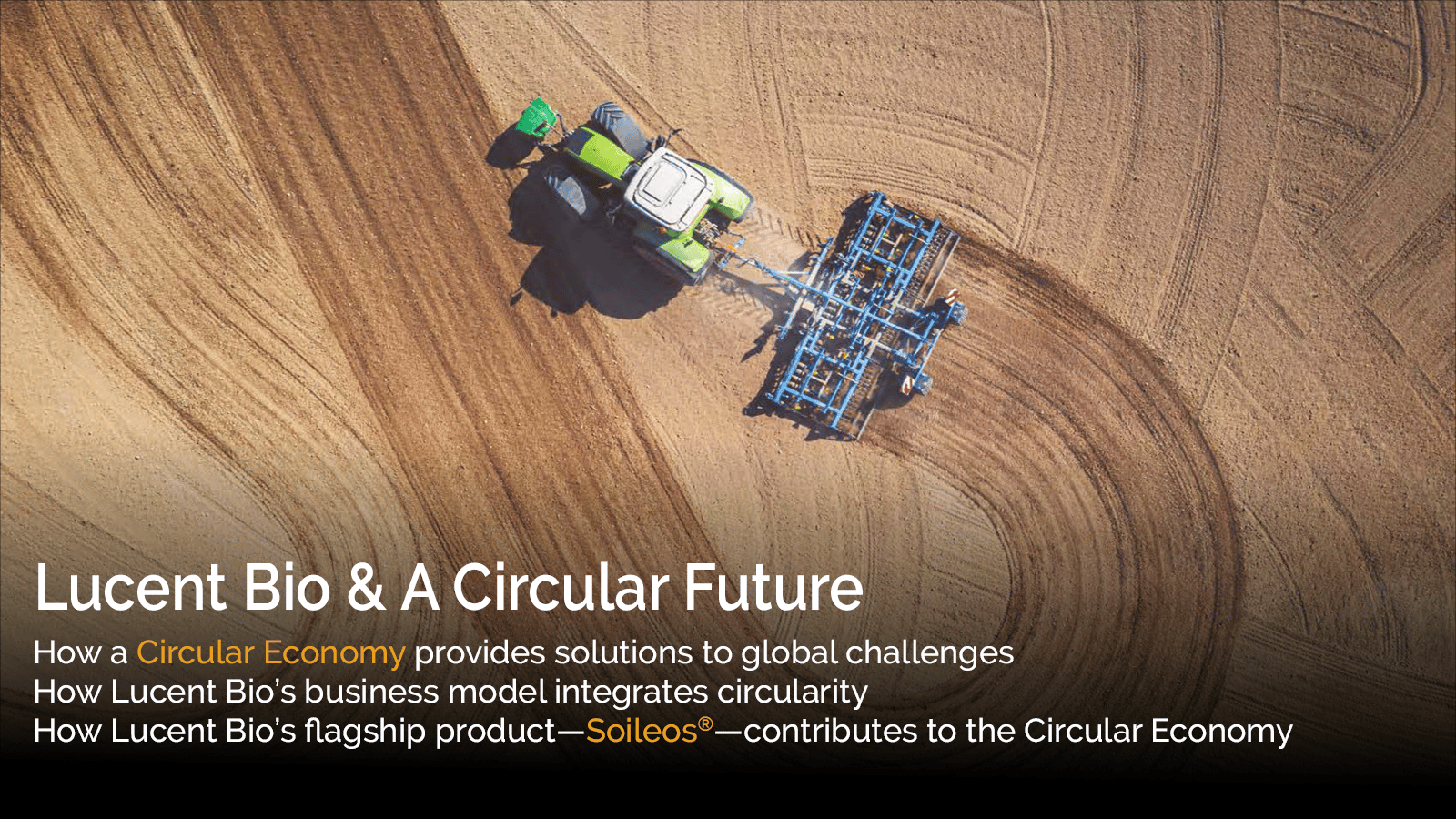At Lucent Bio every day is Earth Day. Where we work to protect the environment, not just for ourselves but for generations to come. Regenerative agriculture has the power to change the world and it starts with the soil beneath our feet.
Our mission is to accelerate the transition to a sustainable agri-food system through innovative crop input solutions that are climate-positive, non-polluting, and based on circular economy principles.
Our technology uses cellulose as the delivery substrate for essential plant nutrients instead of synthetic molecules like EDTA. The cellulose used for Soileos comes from the repurposing of agricultural residues such as pea hulls, rice husks, and lentil husks. These fibers have the added benefit of decomposing naturally and becoming a source of carbon in the soil for microbes.
Soileos is a suite of bioactive crop nutrition products that:
- Increases crop yield and quality
- Boosts nutrient density in crops
- Regenerates soil
- Does not pollute agro-ecosystems
- It is a part of the circular economy.
Lucent Bio creates an avenue for the agri-food community to enhance their environmental stewardship, improve their resource management, and become leaders in regenerative agriculture. Our tech is made to support farmers with data driven decisions to help them be more profitable and contribute to climate change mitigation.

Transitioning the agri-food sector into a circular model is an intricate and multifaceted challenge. It requires innovations in technology, products, practices, business, and sociocultural attitudes. Global climate action policies and plans such as the European Union’s Green Deal and Canada’s Healthy Environment and a Healthy Economy have developed aggressive targets that aim for net zero emissions by 2050. These targets will have to be met at the same time as food security needs to be increased for a growing population. And producing more food needs to be done with an ever-decreasing environmental impact.
A circular economy is a robust way to reach climate action targets because it has a smaller environmental impact while providing the agri-food sector with resiliency and greater profits.
